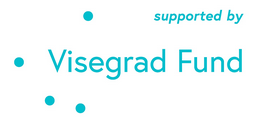The Most Beautiful Catastrophe is an interdisciplinary exhibition-intervention, which reflects on the future of post-industrial societies, and on the upcoming collapse of the world as we know it. The site-specific exhibition will work as an unofficial event accompanying the UN Climate Change Conference (COP24) in Katowice, 15 km from the gallery. Holding the COP24 in Upper Silesia calls for attention and artistic commentary for at least two reasons. Firstly, the region has a well-deserved reputation as one of the most polluted and eco-unfriendly regions in Europe. The area, exploited for coal mining for centuries, is an example of failure, where deindustrialization did not go as smoothly as neoliberal politicians had forecast.
Since the economic transformation of 1989, the polluted region has been experiencing a recession and social problems, due to the economic reforms and privatization. Secondly, organizing the UN Climate Conference in Poland is highly ironic in the context of recent barbaric actions by the Polish right-wing government. Among them: the legislation enabling the felling of 3 million trees, the scandalous destruction of Białowieża – the last remaining primeval forest in Europe, and constant populist slogans about going back to coal-based energy.
The show provokes questions about the position of spectator and participant in the environmental, economic and military catastrophes to come. Placing the visitor between the forces of global capitalism, activism and media spectacle, the show addresses issues of individual responsibility and climate change within both local and global contexts of post-industrial regions and just energy transitions. The Most Beautiful Catastrophe proposes rethinking the future of the planet, and relations between humans and nature, but without fetishizing the latter. The exhibition rejects the new-age vision of ecology and endorses the death of the Goddess-Nature. To use Peter Ward’s concept, Mother Earth like Medea, a murderer of her own children. Thus, to overcome this crisis, and delay the ultimate death of all life on Earth, humanity must act and go beyond what we experience as nature.
The project is co-financed by the Governments of Czechia, Hungary, Poland and Slovakia through Visegrad Grants from International Visegrad Fund. The mission of the fund is to advance ideas for sustainable regional cooperation in Central Europe.
